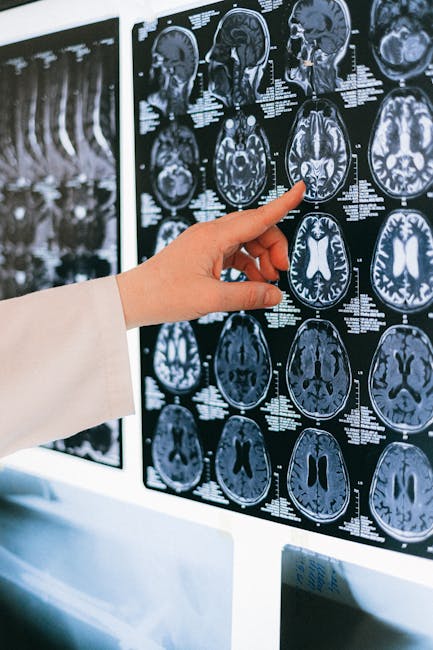Biden’s Health: A Comprehensive Overview of the President’s Physical and Mental Well-being
Understanding President Biden’s Health: A Deep Dive
President Joe Biden’s health has become a topic of national and international interest, prompting scrutiny and discussion regarding his fitness for office. This detailed analysis aims to provide a comprehensive overview of the available information, addressing both his physical and mental health, while acknowledging the limitations inherent in publicly available data regarding a sitting president’s health.

Physical Health: A Look at the Medical Records
The White House routinely releases summaries of President Biden’s physical examinations conducted by his physician, Dr. Kevin O’Connor. These reports offer insights into various aspects of his physical health, including:
- Cardiovascular health: Reports have detailed his cholesterol levels, blood pressure, and heart rhythm. Any relevant findings, such as the detection of atrial fibrillation in the past, are typically included and their management discussed.
- Neurological health: Given his age, assessments of his cognitive function and neurological status are crucial components of the examinations. While details are often kept relatively general in public releases, the reports address concerns about gait and any potential neurological conditions.
- Musculoskeletal health: Details regarding any injuries, arthritis, or other musculoskeletal issues are frequently included. These reports often highlight the impact of any such conditions on his physical activity and overall mobility.
- Other health conditions: Any other significant health conditions, such as allergies or chronic illnesses, are usually noted, along with their current management and treatment plans.
It’s important to note that the released summaries provide a general overview and don’t necessarily disclose all details. The level of detail is often balanced against preserving the president’s privacy while still informing the public. Analyzing these reports requires careful consideration and a nuanced understanding of medical terminology and context.
Mental Health: A Less Transparent Assessment
Assessing a president’s mental health is inherently more complex and often less transparent than their physical health. While overt signs of cognitive impairment or mental illness are easily noticeable, subtle shifts or underlying conditions are more difficult to gauge based on public appearances alone. Public perception plays a significant role, and any observed behaviors are subject to varied interpretations.
Factors influencing assessments of the President’s mental health include:
- Cognitive sharpness: Observations of his speech, decision-making processes, and ability to engage in complex discussions are used to assess his cognitive abilities. However, these observations are often subjective and based on limited exposure.
- Emotional stability: Public appearances and interactions are analyzed for signs of emotional stability and resilience. However, the stress associated with the presidency can significantly influence an individual’s behavior.
- Stress management: The ability of a president to manage the immense stress and pressure of the office is crucial for their effectiveness. However, details on how the President manages stress are usually not publicly revealed.
The lack of transparency surrounding mental health assessments makes comprehensive evaluation extremely challenging. Reliable judgments require a cautious approach, avoiding oversimplification and relying on multiple perspectives and well-informed sources.

Transparency and Public Access to Information
The level of transparency concerning a president’s health has evolved over time. While previous administrations have varied in their openness, the current administration’s approach to disclosing information remains a subject of ongoing debate. Balancing the public’s right to know with the president’s right to privacy presents a considerable challenge. Concerns regarding the potential for misinterpretations and the exploitation of health information for political purposes add another layer of complexity.
The Role of Age in Presidential Health
President Biden’s age is a significant factor in the health discussions surrounding him. The effects of aging on physical and cognitive abilities are well-documented. While age itself is not a disease, it increases the likelihood of developing certain health conditions. Understanding the age-related changes and their potential impact on presidential duties is critical.
Age-related considerations often include:
- Increased risk of chronic conditions: Older individuals are more susceptible to conditions like heart disease, arthritis, and cognitive decline.
- Slower recovery from illness or injury: Recovery time from illnesses or injuries may be longer in older adults.
- Reduced stamina and endurance: The physical demands of the presidency may become more challenging with age.
However, it’s important to emphasize that age is just one factor, and individual variations are significant. Some older individuals maintain excellent health and vitality, while some younger individuals face health challenges. Assessing the impact of age requires a case-by-case analysis, avoiding generalizations and stereotypes.
Political Implications and Public Opinion
Discussions about President Biden’s health inevitably have political ramifications. Concerns about his fitness for office can influence public opinion and election strategies. These discussions often become intertwined with partisan politics, leading to biased interpretations and the spread of misinformation.
Responsible reporting and analysis are essential to avoid perpetuating inaccurate information. Reliance on reputable sources, careful interpretation of medical reports, and avoiding speculative claims are critical in ensuring fair and informed public discourse.
Conclusion: A Need for Informed and Balanced Discourse
Evaluating President Biden’s health requires a nuanced approach, acknowledging both the limitations of publicly available information and the importance of informed analysis. Discussions surrounding his physical and mental well-being must be grounded in facts and avoid partisan bias. A balanced approach that respects the president’s privacy while ensuring public access to relevant information is essential for maintaining public trust and fostering a healthy democratic process. This ongoing discourse requires ongoing vigilance against misinformation and a commitment to evidence-based assessments.

Further research and ongoing monitoring are needed to fully understand the complexities of a president’s health, both physically and mentally. A critical analysis of available data and careful consideration of the limitations of such information are essential for informed public discussion. The health of a president is a matter of significant national importance, warranting continuous and responsible scrutiny.






